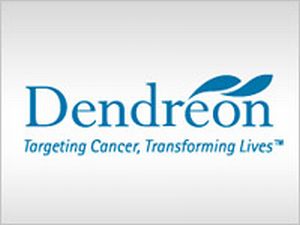 Though near-term growth visibility for its cancer vaccine Provenge remains cloudy, Seattle-based Dendreon (DNDN) could be an attractive takeover candidate – especially to a major pharmaceutical house seeking a unique oncology platform.
Though near-term growth visibility for its cancer vaccine Provenge remains cloudy, Seattle-based Dendreon (DNDN) could be an attractive takeover candidate – especially to a major pharmaceutical house seeking a unique oncology platform.
Consensus on Wall Street is that Dendreon will need to launch Provenge (sipuleucel-T) successfully before any buyers come knocking at its door. To the contrary — Approved in April 2010 for the treatment of advanced (hormone-refractory) prostate cancer, Provenge is the first therapy in the U.S. designed to induce the body’s own immune system to attack prostatic tumor cells. Its side-effects are less-toxic than traditional chemo-based treatments for advanced prostate cancer, such as Sanofi’s (NYSE:SNY) taxotere (docetaxel). And, unlike the plethora of drugs in the treatment paradigm for metastatic, castrate-resistant (hormone-refractory) prostate cancer, , such as AstraZeneca Plc’s (NYSE:AZN) Zoladex or Abbott’s (NYSE:ABT) wildly popular Lupron injection, Provenge doesn’t focus on reducing testosterone levels , the male hormone fueling growth of tumor cells.
Acquiring Dendreon offers a better-capitalized pharmaceutical company an opportunity to buy control of a potential blockbuster drug (on the cheap); mitigate potential revenue shortfalls going forward from patent expirations in their own portfolios; gain access to lucrative new technology platform (targeted immune-cellular therapy could have applications beyond current labeling); and, cost-efficiently broaden existing oncology portfolio pipeline.
Granted, Dendreon is unlikely to command a premium it might have been offered a year ago. Nonetheless, given the company’s over-dependence on Provenge and a dearth of late-stage prospects in its drug pipeline, any attractive offer would be worth pursuing.
Appealing White Knights
- London-based AstraZeneca is facing a patent precipice: Anti-psychotic Seroquel, which generated worldwide sales of $5.3 billion in 2010, or some 16 percent of company drug sales, falls off the patent cliff come April 2012. Additionally, the company has hit rough waters looking to expand beyond its current portfolio of prostate-cancer treatments (such as Zoladex). In February 2011, management announced it was suspending regulatory exercises for its once-promising drug for hormone-refractory prostate cancer, an endothelin pathway blocker called zibotentan, due to lackluster efficacy.
- With the U.S. patent on its blockbuster drug Enbrel expiring in October 2012 (albeit a generic has yet to be approved stateside due to moiety issues), Amgen’s (AMGN) business model going forward speaks to a strong push to become a leader in oncology-derived product sales. Sales for Vectibix (panitumumab), approved in 2006 for metastatic colorectal cancer that has progressed after treatment with other chemotherapy, however, continue to disappoint – and management is desperate to find a new drug to anchor its oncology franchise. So much so that the company paid $1 billion this year to acquire BioVex for its late-stage OncoVex cancer vaccine (utilizes “oncolytic” viruses – imploding the tumors from within).
- A leader in immune-oncology, Bristol-Myers Squibb (NYSE:BMY) continues its hunt for oncology “pearls.” And the U.S. pharmaceutical powerhouse isn’t afraid to lay down the cash to land a potential winner: In August 2009, BMY spent $2.9 billion on Medarex to acquire rights to its investigative melanoma drug ipilimumab (approved in March 2011, trade name Yervoy). Analysts are forecasting U.S. sales for Yervoy in melanoma of $925 million by 2017. That said, BMY continues to be highly dependent on Plavix (clopidogrel), having derived some 50 percent of stateside sales of $3.5 billion from this blood thinner last quarter. With the drug facing patent expiry next year, the hunt is still on for the next oncology blockbuster to take its place. Given BMY already has a well-entrenched U.S. oncology sale force, Provenge just might look appealing to senior management.
- Celgene (CELG) leads with its multiple myeloma drug Revlimid (sister drug to the once notorious thalidomide). However, the company in recent years has been looking to expand beyond blood cancers into other oncology fields. In 2010, Celgene purchased Abraxis BioScience for $2.9 million – a huge premium spent specifically for Abraxane, a chemo-drug indicated for breast cancer (with trailing 12-month sales of $315 million). Having digested that purchase, Celgene is likely on the prowl once again.
Change in Control – Executive Employment Agreements
A review of regulatory filings suggests that insiders would be well-served financially to sign-off on a merger agreement, assuming the takeout “price was right.” For example, in the event of termination following a buyout, chief executive officer Michael Gold and chief financial officer Gregory Schiffman would receive lump sum payments equal to 200% of base pay and 150 percent, respectively, and 100% of targeted annual cash incentive awards: As of December 31, 2010, Gold and Schiffman would each get cash payments of $2.35 million and $874,000. In addition, each executive would receive full acceleration of all stock options and restricted stock awards (albeit stock awarded in last 24-months is currently underwater, having been issued at strike prices ranging from $26.64 to $37.36 per share).
What is Dendreon worth in a buyout?
In assessing the potential worth of Dendreon, there are several valuation methodologies investment bankers could decide between, from the Cost Approach (replacement cost of tangible and intangible assets) to an Income-based Approach (not applicable) to Sales Comparables. Given that the launch of Provenge occurred less than 18 months ago, premising valuation on a multiple of trailing revenues would be a reasonable exercise.
Based on a review of comparable biotechnology companies (similar stage of development), acquisitions made in the last two years suggest a multiple of five –to- ten times trailing twelve-month (TTM) sales would represent fair value. On the high-end – with a built-in assumption that an experienced sales force could turn around moribund growth – a fair valuation price for Dendreon would be $1.65 billion, or about $11 per share, a 47% premium to the current trading price.
Related Posts: Dendreon – Not Running Out of Cash
In 20 Years, I Haven’t Seen A Cash Back Card This Good
After two decades of reviewing financial products I haven’t seen anything like this. Credit card companies are at war, handing out free rewards and benefits to win the best customers.
A good cash back card can be worth thousands of dollars a year in free money, not to mention other perks like travel, insurance, and access to fancy lounges.
Our top pick today pays up to 5% cash back, a $200 bonus on top, and $0 annual fee. Click here to apply before they stop offering rewards this generous.
Flywheel Publishing has partnered with CardRatings for our coverage of credit card products. Flywheel Publishing and CardRatings may receive a commission from card issuers.
Thank you for reading! Have some feedback for us?
Contact the 24/7 Wall St. editorial team.



